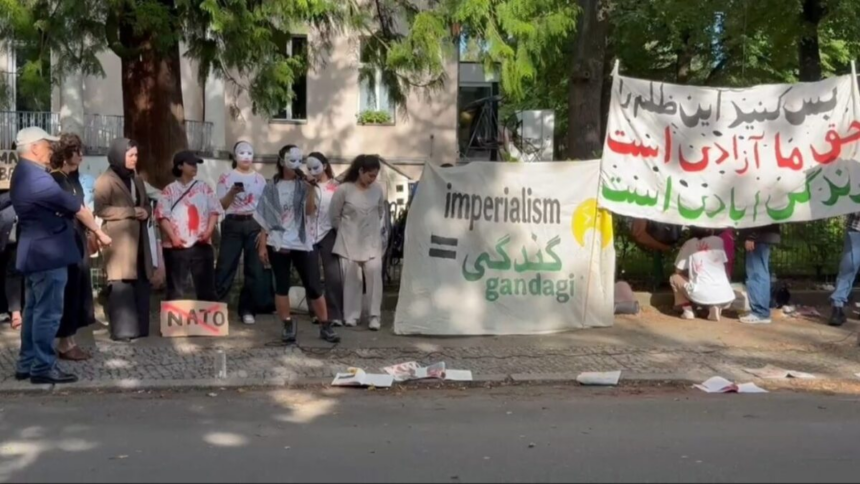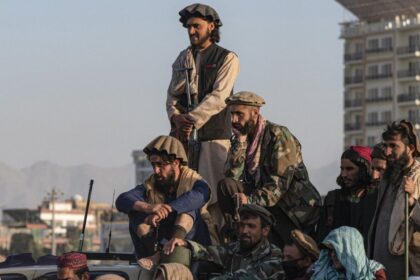RASC News Agency: Hundreds of Afghanistani refugees and exiles gathered resolutely outside the former Afghan Embassy in Berlin to voice their unequivocal opposition to the German government’s controversial decision to accept two diplomatic envoys appointed by the Taliban regime. This protest represents a broader, deeply-rooted resistance among Afghanistan’s diaspora against the creeping normalization of a government borne out of violence and repression. Carrying banners emblazoned with resolute slogans such as “The Taliban Do Not Represent Our People” and “Recognition of Terror is Betrayal of Victims,” the demonstrators condemned what they described as an alarming and misguided effort to establish diplomatic relations with a regime that continues to perpetrate grave human rights abuses across Afghanistan.
In a statement circulated by the protest’s organizers, the refugees and civil society activists warned that any political recognition of the Taliban’s representatives would not only flagrantly disregard the regime’s egregious violations of human rights but would also “embolden other authoritarian and repressive forces worldwide by signaling impunity.” The statement emphasized:
“The Taliban seized power through armed coercion and systemic intimidation. They lack electoral legitimacy and represent no authentic constituency within Afghanistan’s diverse society.”
The protesters further disclosed that a formal legal complaint has been filed in German courts against the two Taliban-appointed envoys who recently participated in a diplomatic forum hosted in Germany. Organizers unequivocally asserted:
“These individuals are not legitimate diplomats; they are affiliates of a designated terrorist organization and must be held accountable before international justice mechanisms.”
This demonstration is far more than a spontaneous emotional reaction by displaced persons; it forms part of an organized, principled movement led by Afghanistani human rights defenders, civil society leaders, and women activists committed to countering the gradual and dangerous international legitimization of the Taliban regime. Since the fall of Kabul in August 2021 and the Taliban’s return to power, no major government has officially recognized the regime’s authority. Yet, the incremental appearance of Taliban representatives in international summits, diplomatic engagements, and now within diplomatic premises sends a disquieting signal to millions of Afghanistanis who have suffered three decades of violent conflict, repression, and displacement. Many interpret this as a profound betrayal, a sidelining of the authentic voices and aspirations of the Afghan people.
The protest organizers vowed unwavering persistence in their campaign, declaring coordinated efforts with diaspora communities across Europe and beyond to initiate international legal and civil society campaigns aimed at preventing the political legitimization of the Taliban. As one prominent activist articulated:
“This protest is merely the opening salvo in a broader struggle for justice, dignity, and the recognition of the true Afghanistani people. We will not relent until the international community stands firmly against the enablers of oppression.”






